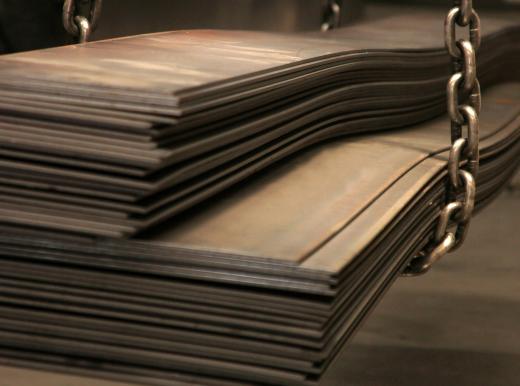Hydraulic shears are used in high volume metal fabricating operations that require the ability to accurately and quickly cut and score sheets of metal. Hydraulic shears, contrary to their name, look nothing at all like shears. Instead, the cutting mechanism is enclosed inside a large stand-alone unit that can be as much as ten feet tall and 16 feet long. Multiple sets of sharp blades inside the shears cut to the metal to the specification of the operator, while support arms stabilize the metal as it is being cut.
Hydraulic shears are favored for high intensity metal manufacture because they are quick, quiet, and capable of operating continuously. These shears can accommodate a range of sizes of metal plate, depending upon the manufacturer and model. Many can cut through up to an inch of metal and are also used in demolition to shred metal into more manageable parts for recycling. Most shears are designed for over-floor installation and do not need to built into the factory, which means that they can also be moved around as production line needs change.

The metal to be cut is inserted into the hydraulic shears and held in place with clamps so that it does not shift position during the cutting process. If a 90° cut is required, a squaring arm or back gauge will be employed to ensure an even, smooth cut. A small burr may be formed by the edge of the blade, which can be ground off. Users of hydraulic shears should be aware, however, that small marks may be left by the blades and holding clamps, and that they should compensate accordingly.
Like all heavy equipment, hydraulic shears can be dangerous when operated incorrectly or improperly maintained, although the shearing system is contained inside the unit and out of the inadvertent reach of the user's extremities. It is important that the blades remain sharp to prevent off-cuts and to maximize efficiency, and that all moving parts are kept well oiled and clean. In addition to checking the electrical system frequently, users should make sure to maintain the levels of hydraulic fluid to the manufacturer's specifications to avoid injury or damage to the machine.
